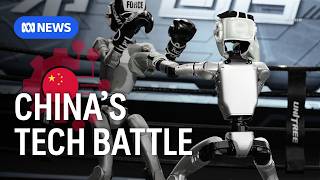The Rise of AI and Its Impact on Various Industries
Author: Tom Bedford

Artificial intelligence (AI) has been rapidly evolving over the past decade, transforming industries and revolutionizing how businesses operate. From automating mundane tasks to making complex decisions, AI technologies are reshaping the landscape of modern work. This article delves into the various applications of AI across fields such as healthcare, education, and technology, illustrating its profound impact on society.
In healthcare, AI is streamlining various processes and improving patient outcomes. Technologies such as machine learning algorithms are being utilized to analyze vast amounts of medical data, assisting healthcare professionals in diagnosing diseases more accurately and swiftly. For instance, AI-driven applications can analyze X-rays and MRI scans, identifying anomalies that may be overlooked by human eyes. Additionally, AI-powered predictive analytics are helping in the early detection of diseases, which can lead to more effective treatments.

AI is revolutionizing healthcare by improving diagnostics and treatment outcomes.
The education sector is also seeing notable changes with the integration of AI. Recent developments, including Google's Gemini AI, are enhancing learning experiences by providing personalized tutoring and instant feedback to students. Such AI tools harness data to adapt teaching methods to individual learning styles, ensuring students grasp concepts more effectively. Furthermore, AI's ability to analyze student performance allows educators to tailor their approaches, leading to better educational outcomes.
In the realm of technology, personal devices are becoming smarter due to AI integration. For instance, smartphones are equipped with AI systems that enhance user experience through features like voice recognition and camera enhancements. Android phones, for example, have adopted many iOS-style features to improve functionality, showcasing the competitive landscape of technology and how companies strive to keep pace with each other.

AI tools in education are revolutionizing learning by offering personalized support to students.
The entertainment industry is another area significantly impacted by AI, particularly in content creation and distribution. Streaming platforms are utilizing AI algorithms to analyze viewer preferences and recommend content, thereby enhancing user engagement. Additionally, AI is playing a pivotal role in the production of films and music, automating processes that were once labor-intensive, such as editing and mixing.
However, with the rapid adoption of AI technologies, ethical concerns are on the rise. Issues such as data privacy, algorithmic bias, and the need for transparency in AI decision-making processes are being scrutinized. As AI continues to evolve, it is crucial for stakeholders to address these concerns to ensure responsible development and implementation.

AI is also making its mark in entertainment by streamlining content creation.
As we look ahead, the future of AI appears promising, with potential advancements set to redefine our daily lives. From autonomous vehicles transforming transportation to smart cities utilizing AI for efficient resource management, the implications are vast. Each industry is poised to benefit from these innovations, making it essential for businesses and individuals alike to adapt and embrace the changes.
In conclusion, the rise of artificial intelligence is an exciting yet complex phenomenon that holds the promise of improving efficiency and quality across various sectors. By continuing to explore and innovate within this space, we can harness the full potential of AI while addressing the challenges it presents. As we navigate this new era, collaboration between technologists, policymakers, and society as a whole will be vital in shaping a future where AI serves as a beneficial tool for all.